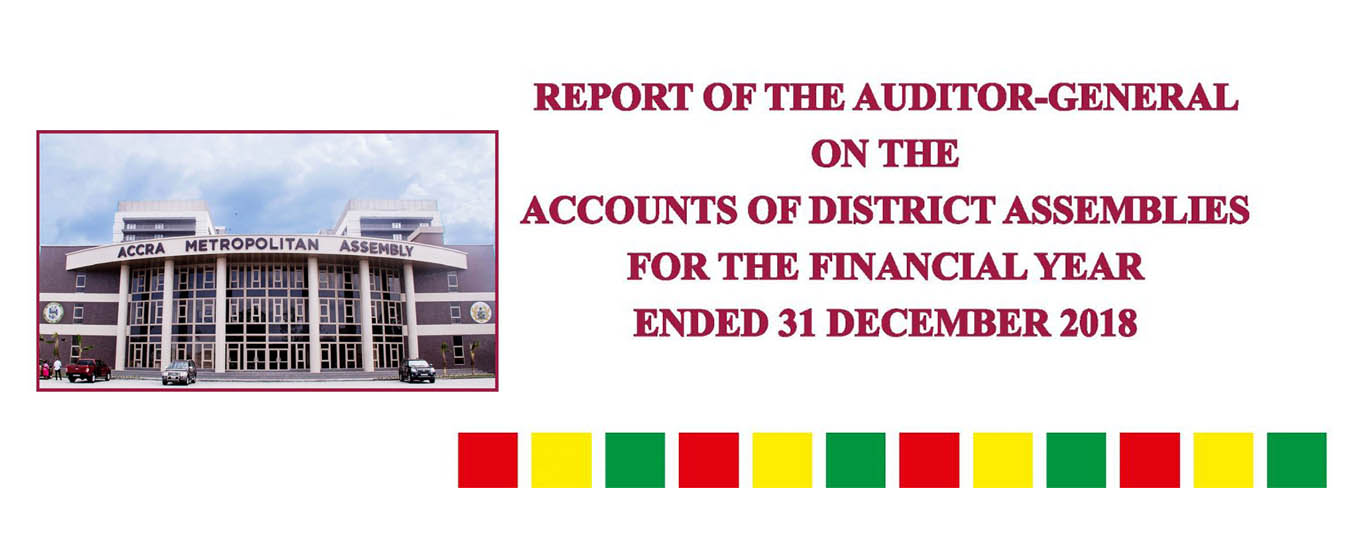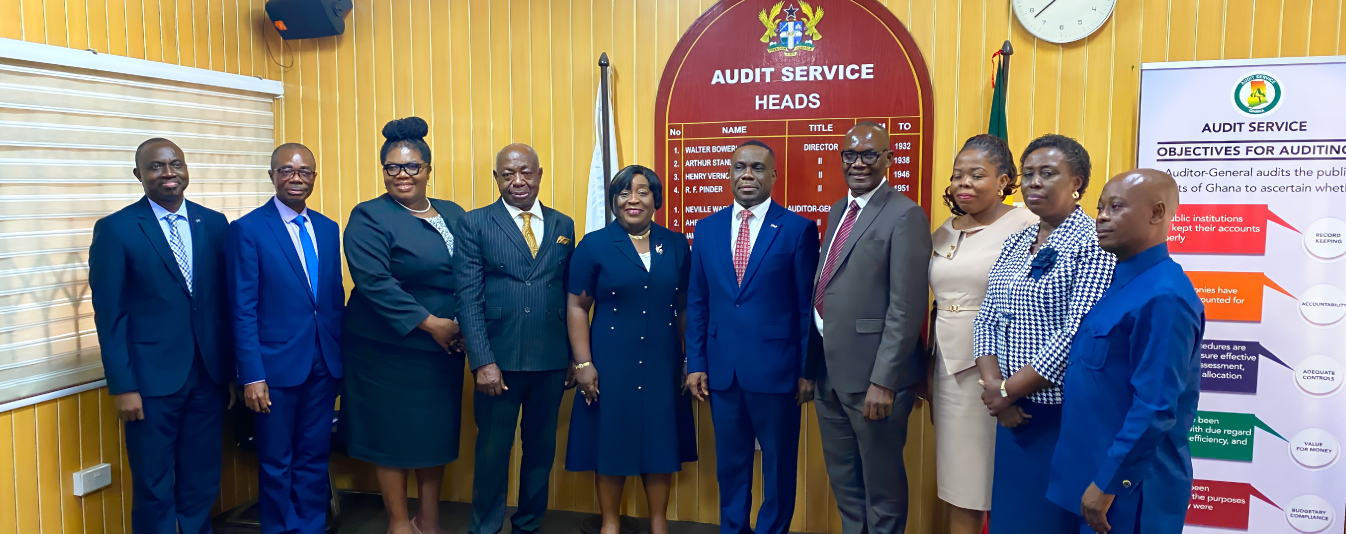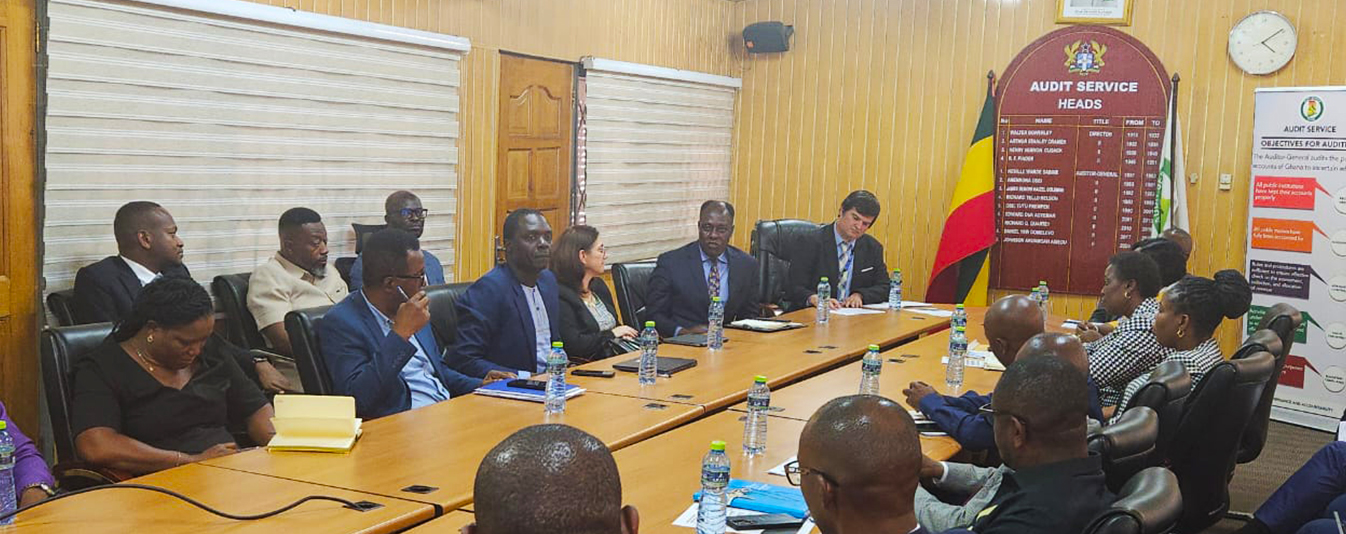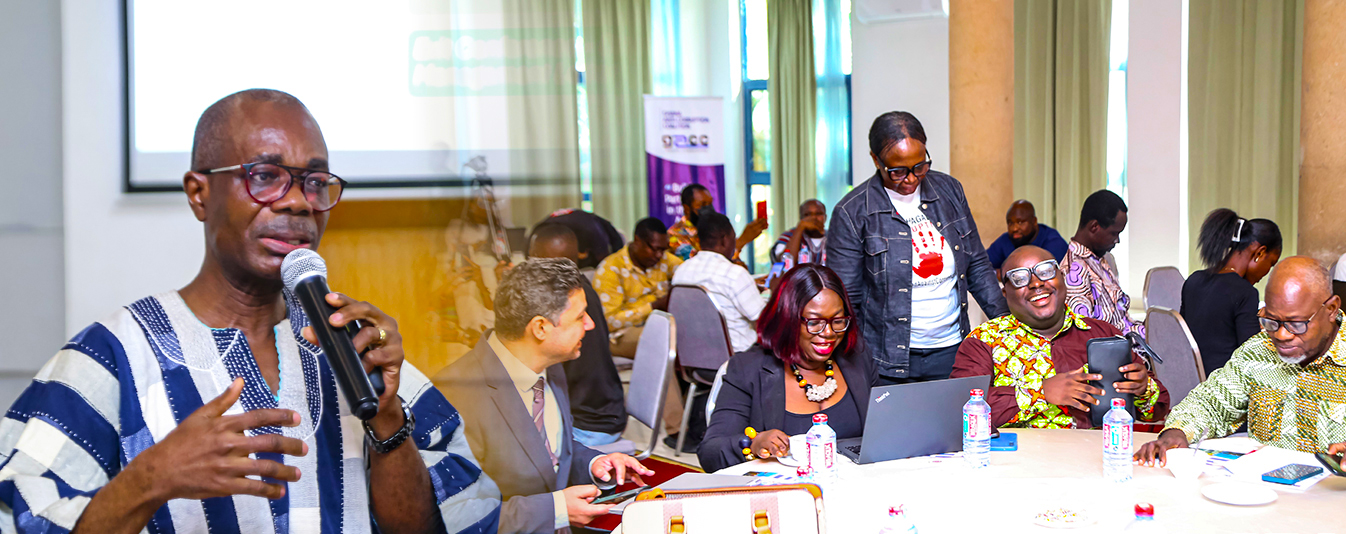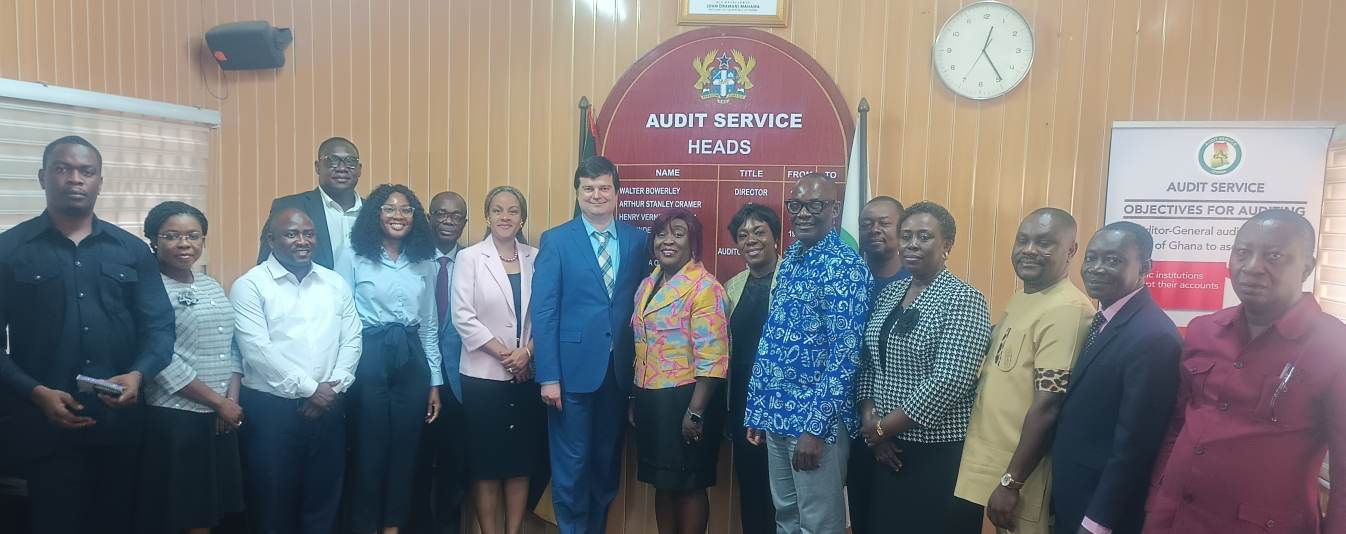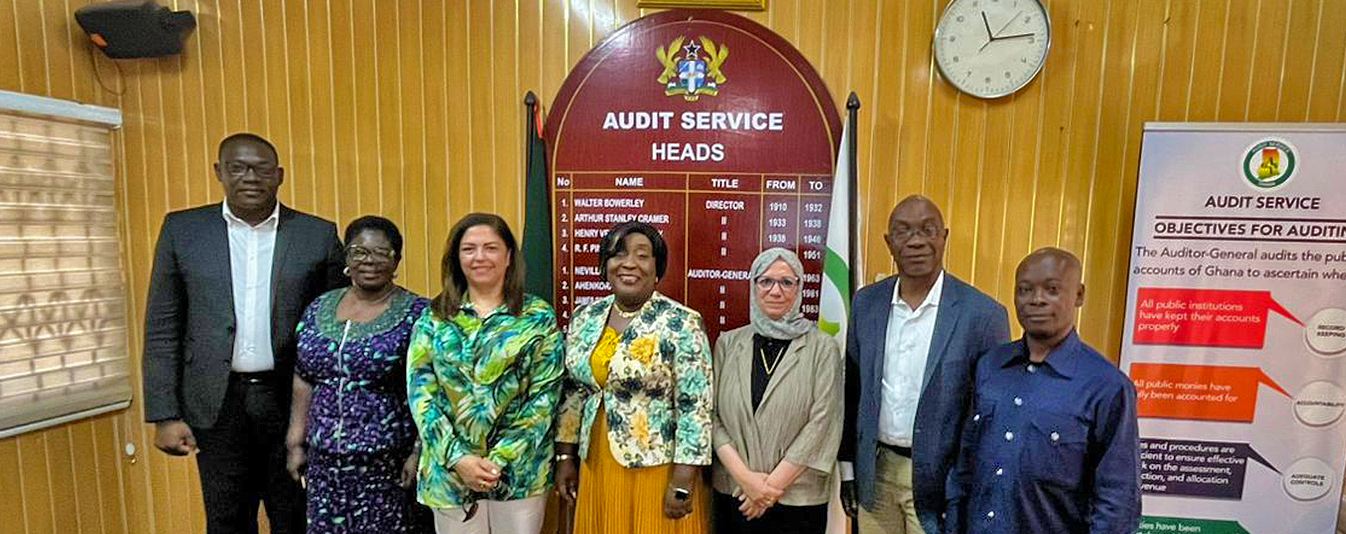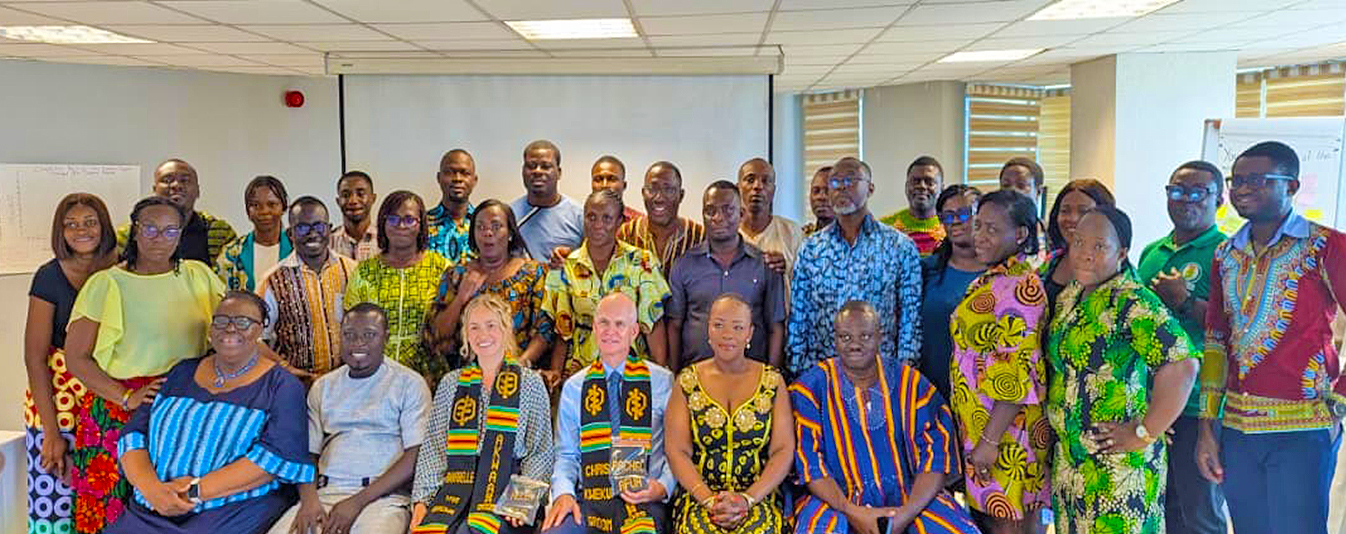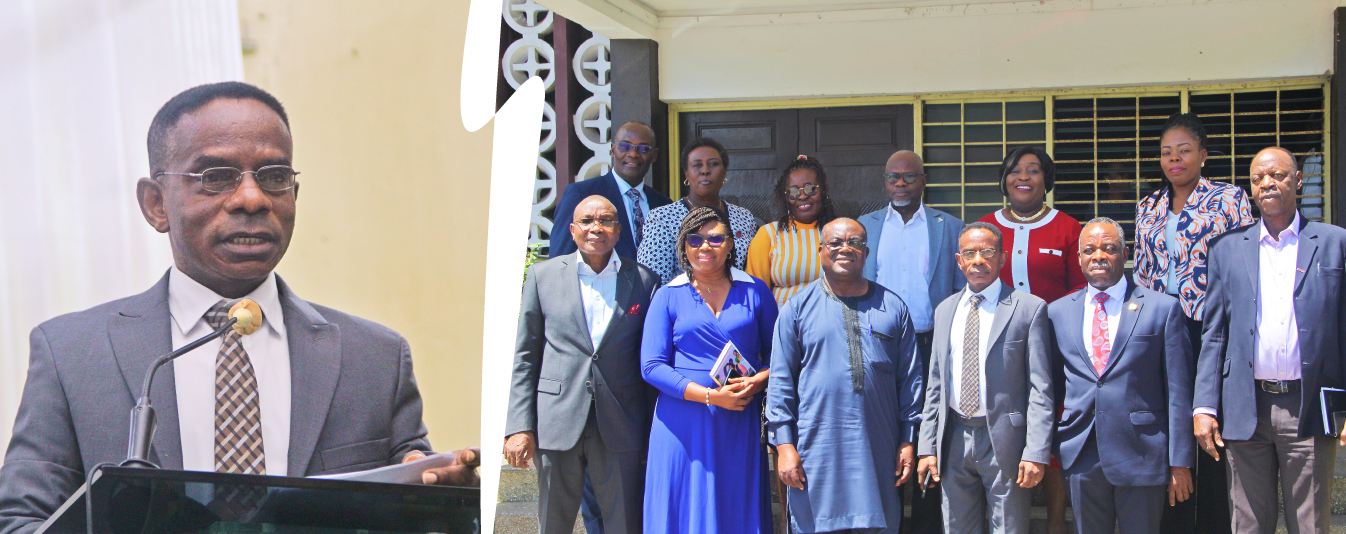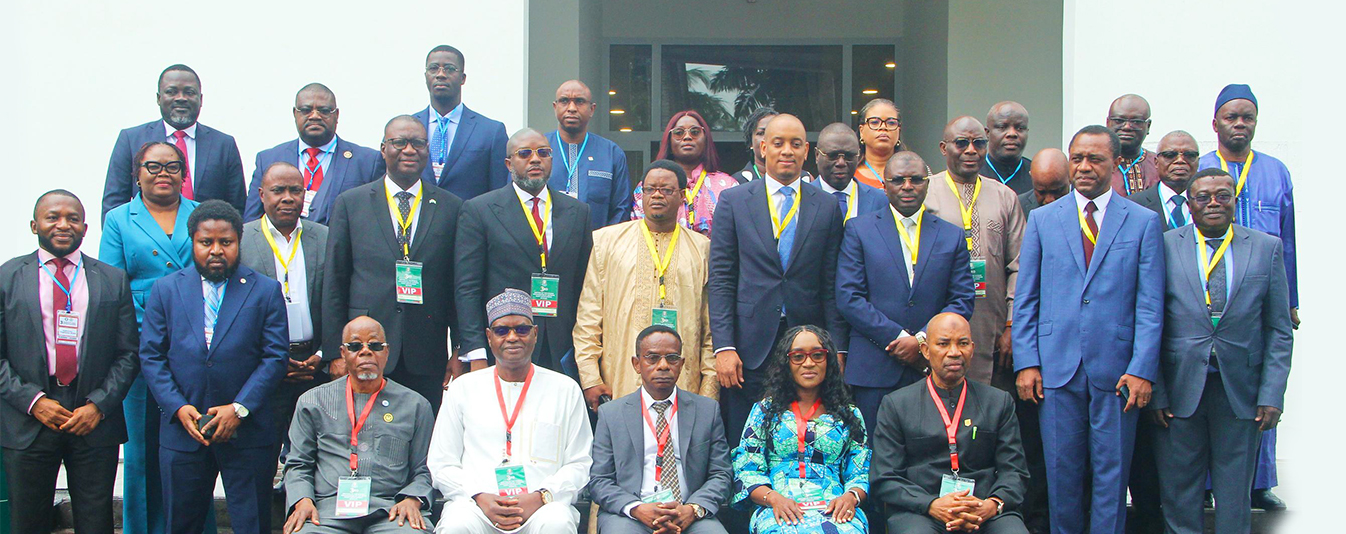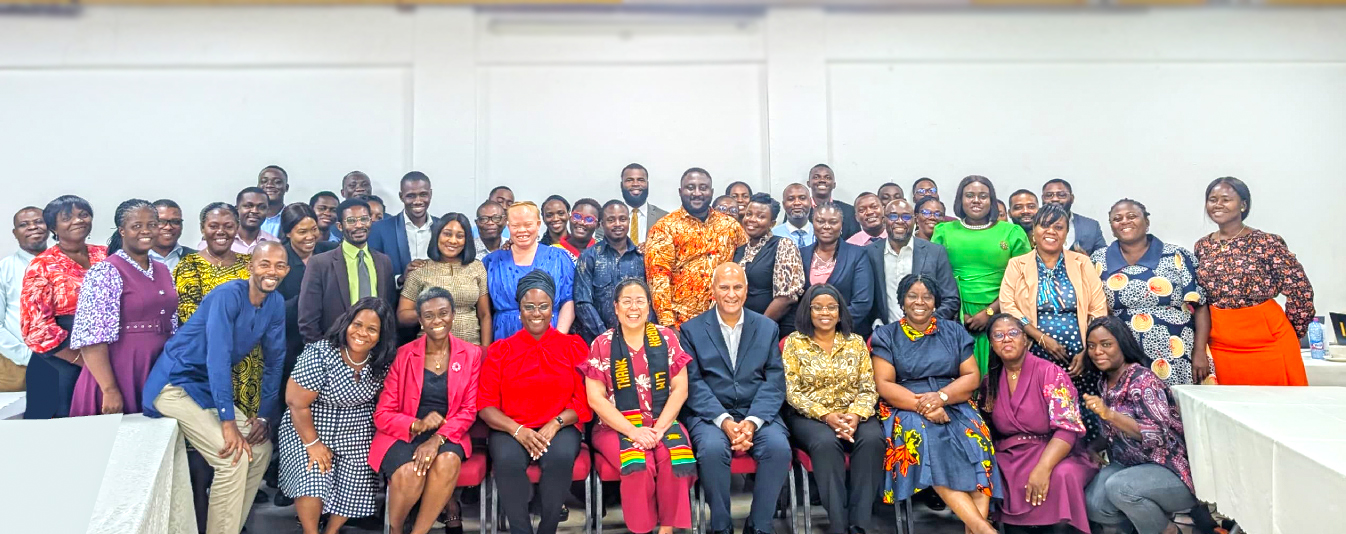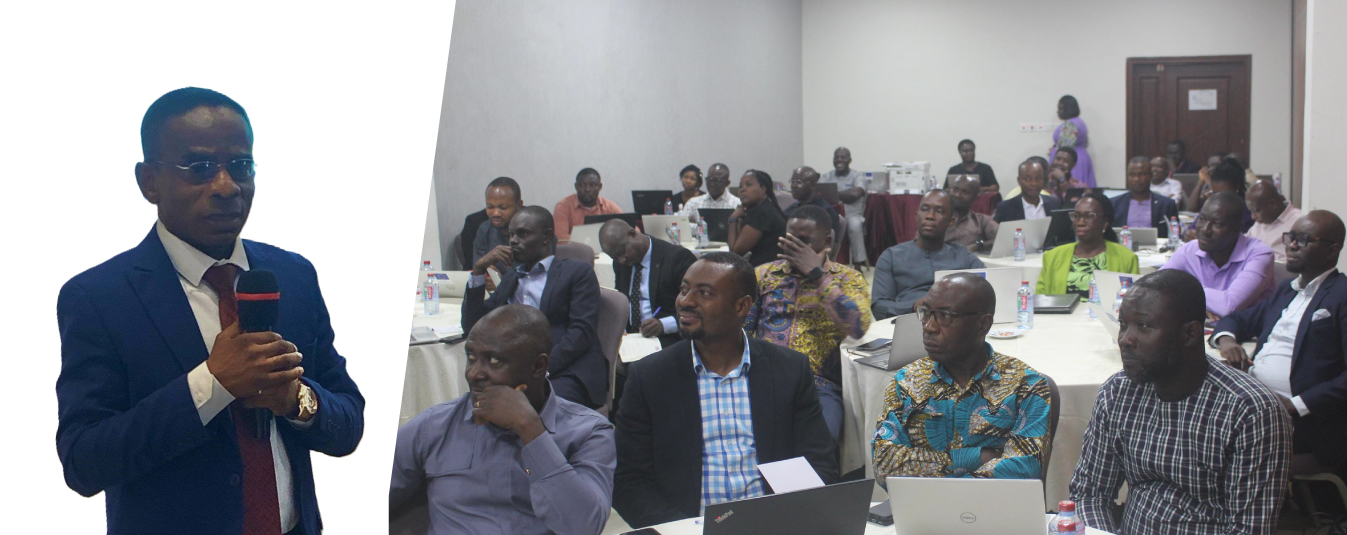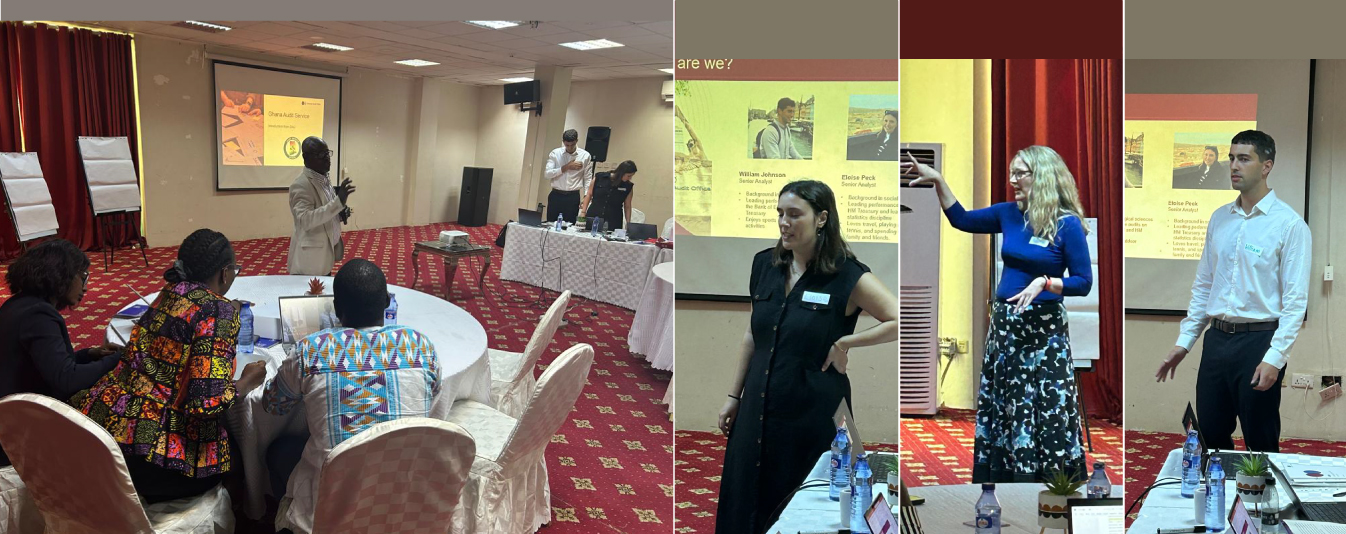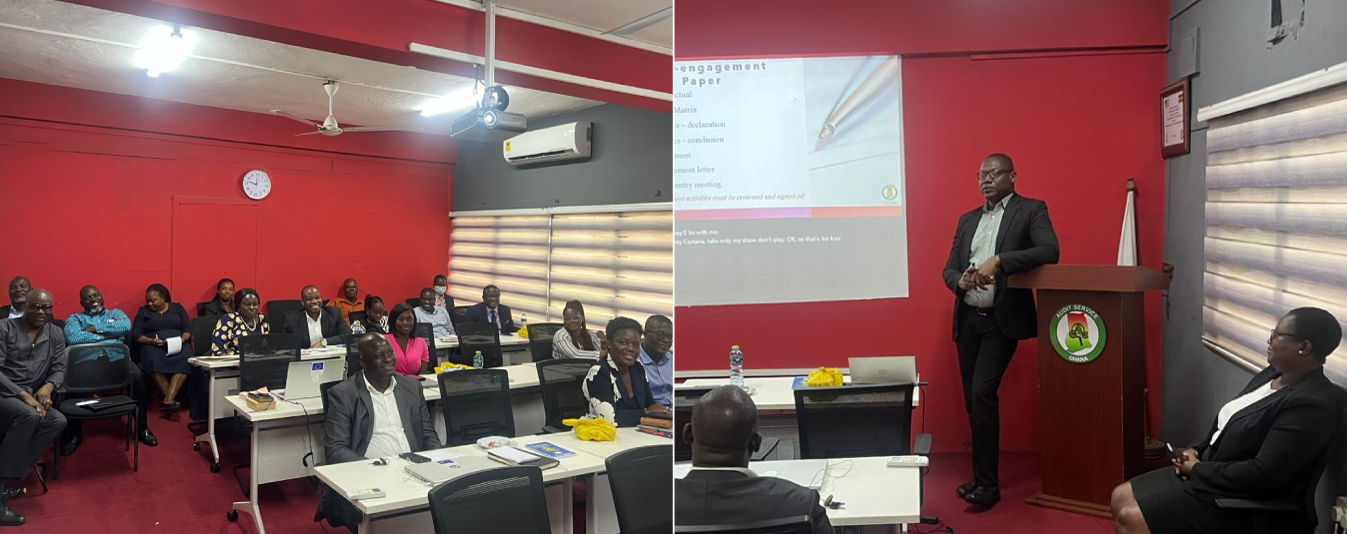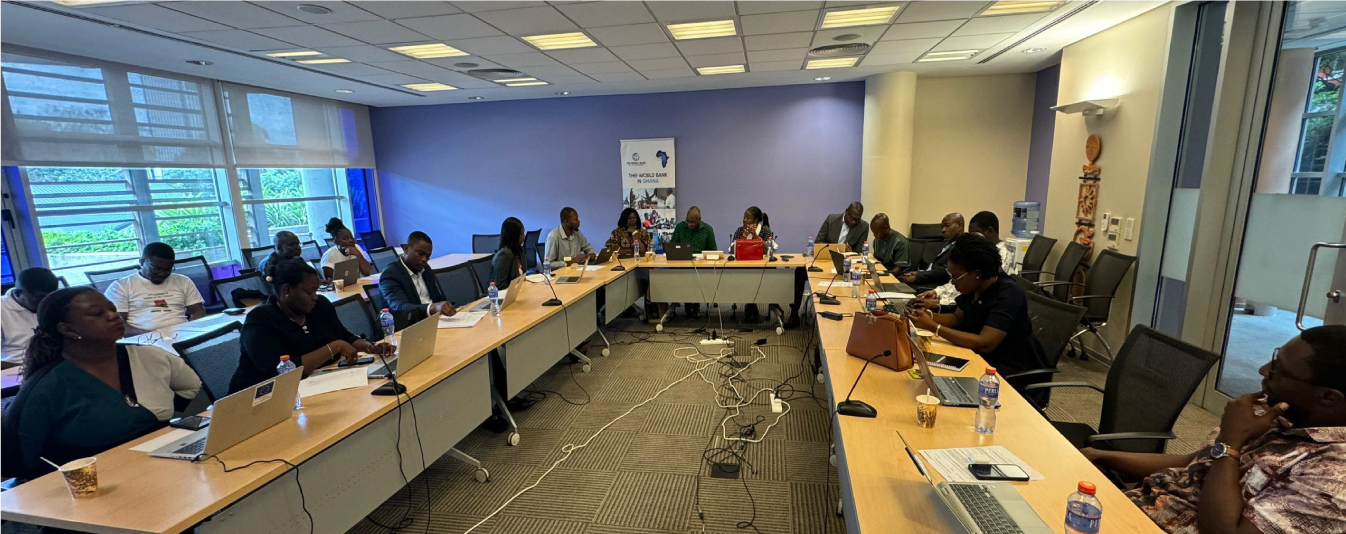In accordance with Articles 187(2) and 253 of the 1992 Constitution of Ghana and Section 84 of the Public Financial Management Act, 2016 (Act 921), the Audit Service carried out audits of the Accounts of the 240 Metropolitan, Municipal and District Assemblies (MMDAs) for the financial year ended 31 December 2018.
The report stated that Ablekuma West Municipal, Accra Metropolitan and Ayawaso East Municipal were among 12 other Assemblies that defaulted in submitting their financial statements for validation.
The report disclosed that the total income received by the 240 Assemblies in 2018 amounted to GH¢1,342,749,020.59. This amount was made up of Internally Generated Funds (IGF), quarterly allocations of the District Assemblies Common Fund, Government salary and grant support from Ghana’s Development Partners (DP). The IGF sources included property rates, fees, licences, royalties and other miscellaneous items.
The Auditor-General stated that ineffective collection strategies, absence of comprehensive records on properties and businesses constituted major infractions. Other infractions the AG reported were the award of easily collectible revenues to private firms who were paid up to 30% of the amounts collected as commission.
The A-G reported that cash irregularities noted during the period amounted to GH¢26,397,410.07. These irregularities comprised of funds embezzled, unaccounted and uncollected revenues, uncollected funds with officials and unsubstantiated payments.
For example, Mr. Domelevo reported that an officer of the Tumu Urban Council collected revenue of GH¢40,056.00 but accounted for only GH¢9,720.00 to the Assembly. As at the time of the audit, the officer had not accounted for the balance of GH¢30,336.00.
Procurement Irregularities were also reported as major infractions during the period. The report also noted compliance violations such as uncompetitive procurement, sole sourcing amounting to GH¢105,455.96, unaccounted fuel and stores items amounting to GH¢468,459.14 and payments for maintenance works without certification amounting to GH¢12,521.92 as procurement infractions.
The Auditor-General observed that irregularities have become a common occurrence because of the failure of Management of the institutions to sanction offenders. In some instances, the report noted that the involvement of senior management personnel have contributed to the perpetuation of the offences.

